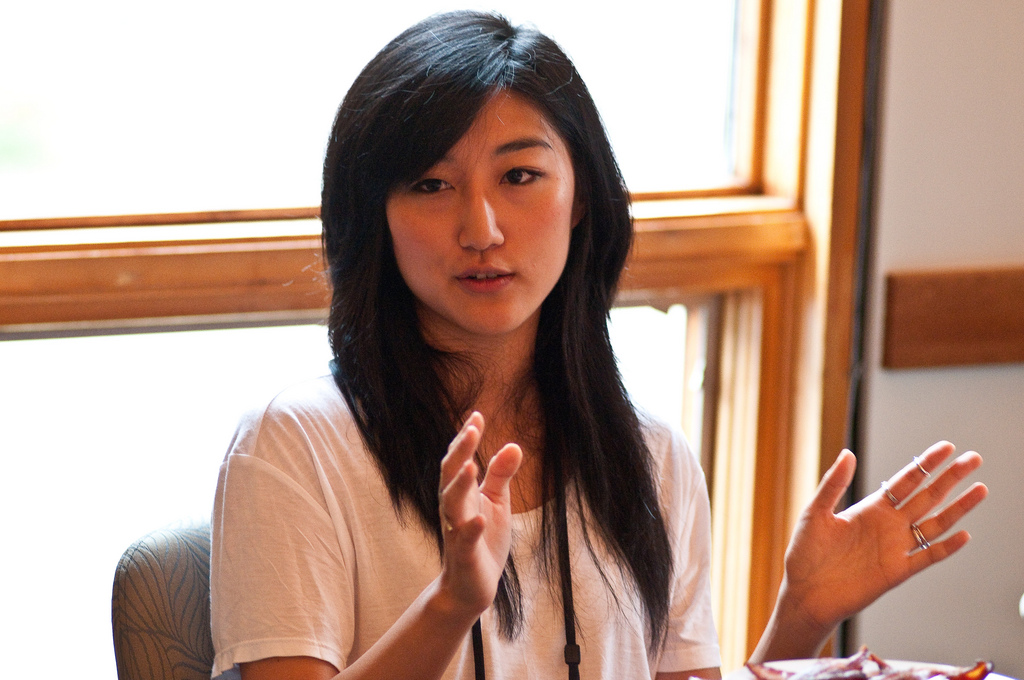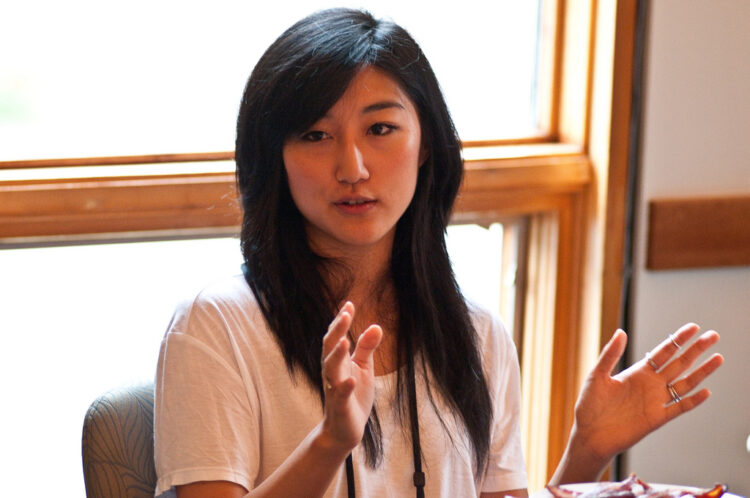
This morning, I clocked into work by joining my daily video checkin. Looking back at me were six people, five of whom are women. Did I mention I work in tech? The stats aren’t usually skewed in that direction.
But I work at Skillcrush, a company founded and run by a woman CEO. I’ve been at Skillcrush since almost the very beginning when we were a teeny team of three. Now, a few years later, I work on a fully remote, global team of mostly women (Max, Brian, love you guys too!!). We are a team of STEMinists, a team of leaders.
Unless you’ve been living under a rock, you’re probably familiar with recent research that shows the importance of diversity in the workplace. Diversity makes us smarter, it pushes us to innovate, and yes—it even improves the bottom line.
This kind of research proving the benefits and need for diversity in the workplace has been around for a while, but it’s only recently that the topic has gained media attention. Despite the recent media buzz, progress toward diversity and inclusion in the tech workplace has been disappointingly slow, especially given the industry’s notoriously rapid pace.
With regards to gender diversity, recently reported data shows that 71 percent of employees in top tech companies are still men. That means only 29 percent of employees are women.
This kind of research shows us the reality that working at a woman-founded and woman-powered company means I AM IN AN AWESOME BUBBLE!
Not only is Skillcrush run by Adda Birnir, Tech Bae extraordinaire, but Skillcrush partners with some fantastic companies ALSO built and run by lady CEOs. I get to work with these fantastic women on a daily basis.
So while it’s totally mind boggling that the pace of change in this arena is sooooo slow, I can—with a glimmer of hope and some relief—confidently say that impact is not.
There are AWESOME women building and growing inclusive companies that create exciting products, solve critical issues and harness the power of technology to incite innovation.
At Skillcrush, we want to add to this group of women. We want to help nudge the aforementioned stats in a better direction. Part of that mission includes celebrating each inspiring #bosslady out there.
Below, meet 27 inspiring women tech catalysts at the helm of influential companies.
Fried founded Adafruit Industries in her dorm room at MIT while studying electrical engineering and computer science. Adafruit provides makers of all ages with electronic kits and tools. Fried was named “Entrepreneur of the Year by Entrepreneur as well as the Most Influential Woman in Tech by Fast Company.
uBeam solves a problem we all have, but have become so desensitized towards—charging. Do you hate tangled wires? How about heavy, bulky chargers? Ever gone to a conference and fought like an animal over the ONE outlet in the room? Meredith Perry feels your pain and her startup, uBeam aims to make wireless devices ACTUALLY wireless.
Busque’s startup, Task Rabbit, is an online service-networking platform that connects you with people near you who are willing to take some items off your to-do list. The platform outsources tasks for busy (or unwilling) people. The platform showcases price transparency and a guarantee on every task.
Young’s app, Plangrid, enables contractors and architects to collaborate on plans via iPad. Young founded Plangrid after graduating college and working in construction management. She realized quickly that the industry was behind the times and created Plangrid with a focus on blueprints to help the industry go paperless.
Bianchini is the CEO & Cofounder of Mightybell, an online platform for niche, personalized social networks. Before running Mightybell, Bianchini founded Ning with cofounder Marc Andreessen & Leanin.org with Sheryl Sandberg. Bianchini is also an investor and an entrepreneur in residence at the Andreessen Horowitz venture firm.
Bell and Tillman created The Detroit Water Project when the city was in the midst of the largest bankruptcy in US history. The DWP website connects donors to those in need—essentially crowdfunding water bills in Detroit.
You log on, enter an amount you’re willing to pay and the site matches you with unpaid water bills. You can pay a bill in full or fund a portion of the bill. The non-profit project launched as part of Y Combinator’s winter class in 2015.
Lee was an avid Polyvore user who wrote a letter to the company detailing features and functionality she felt would make the site even better and even pointing out some errors and issues. Polyvore’s co-founders wrote her back and invited her to come fix issues and build on the platform herself. Combining her passions for tech and art, Lee turned Polyvore into a profitable company for 3 years, and was awarded honorary c-founder status after being named CEO in 2012.
Rashmi Sinha is an entrepreneur and investor who was named one of The World’s Top 10 Women Influencers by Fast Company. Sinha co-founded Slideshare, the presentation-sharing platform, in 2006. It was acquired by LinkedIn in 2012.
Finney founded, then sold the popular Budget Fashionista blog, served as editor-at-large at BlogHer and then founded her firm digitalundivided. DU seeks to narrow tech’s gender and minority gaps via its programs and initiatives.
Perkins founded Canva in Australia, with the intent to create a “disruptive online platform allowing anyone to create professional quality designs.” Canva was founded on a $5,000 tax rebate and a bank loan. In 2015, Canva raised $15 million in Series A funding, with a valuation of $165 million. Fun fact: Canva counts Woody Harrelson and Owen Wilson amongst its investors.
- Whitney Wolfe, Bumble
Bumble, widely considered the “feminist Tinder” is a dating app founded by ex-Tinder cofounder Whitney Wolfe. Wolfe, a tireless voice against sexism in Silicon Valley, founded the app to empower women to make the first move in the online dating scene. On Bumble, women contact potential dates first and matches disappear within 24 hours if contact is not initiated (in the case of same-sex couples, either woman can send the first message).
Setrakian is a foreign correspondent who founded NewsDeeply—an interactive community platform that serves as a “single-subject information hub connecting experts and key decisions makers.” Setrakian has created several niche communities that cover underreported stories for users including SyriaDeeply, WaterDeeply and EbolaDeeply.
- Adi Tatarko, Houzz
Tatarko founded Houzz to cater to homeowners interested in interior design and home-remodeling. The platform allows users to browse photos for inspiration, connect with professionals and contractors and even shop for their home.
The Skimm is a daily newsletter that breaks down current events. I’m a longtime subscriber and I love Skimm’s quick, approachable coverage. Weisberg and Zakin had lengthy careers at NBC before they decided to leave and launch The Skimm.
Former teacher Leavitt founded Hopscotch, a startup that aims to make programming accessible to kids in grades 5 thru 8, when she got tired of watching her students “mindlessly consuming games.” The Hopscotch curriculum focuses on creating games and the platform comes with an online forum and other resources students can use to ask questions and learn the skills they need.
In 2011, Morin founded Brit & Co, an online content and e-commerce company that caters to the DIY set. The site fosters creativity amongst young girls and women and includes a website, several apps and microsites as well as online classes and DIY project kits.
Before Sara founded Jewelbots, she was CTO at Flatiron school and also cofounded Girl Develop It. Jewelbots are programmable friendship bracelets with advanced capabilities. Jewelbots can be connected to a computer and kids can program their own Jewelbots using Arduino software. I don’t care if they’re for kids—I want some for my squad!
- Robin Exton, Her
As the second dating app on this list, Her proves that diversity allows for better products. Her is a dating app for queer women that also lets you find events, chat, make friends, or yes, go on an actual date.
Miller-Out is the founder and CEO of Singlebrook Technology, a NY-based custom web and mobile development company. Singlebrook is a certified B Corp focused on using technology for change, emphasizing social and environmental responsibility.
In 1995, Weinman founded lynda.com, which she sold to Linkedin in 2015. Lynda.com is an online education company that offers a huge catalogue of tech video tutorials. The company has more than 500 employees globally, and until recently, Weinman was still its executive chair.
Trapani founded Lifehacker back in 2005, though she is no longer its CEO. She’s currently working on ThinkUp.com, a platform that analyzes and shares your social media activity. Trapani has received several prestigious awards and has been listed on multiple “most influential women in tech” lists.
Ladd left John Hopkins University in the middle of her PhD program to launch SHI. The organization’s mission is to develop apps, websites, and software that provide access to sexual health and wellbeing education.
Kendall is the founder and CEO of CloudPeeps, a platform that matches freelancers with businesses looking to hire them. She’s also the creator of The Fetch and often writes about entrepreneurship and business.
Milena and Zaleski are tech industry vets who founded PowerToFly, a global platform that places talented tech women in awesome remote positions. Both women are incredibly inspiring and Berry has even taught a master class right here at Skillcrush!
Sankar founded edtech platform Piazza to enable student learning in large classrooms. Piazza allows students (and instructors) to pose and answer questions, help others, and build an online community around class resources.
Image credit: CC by Fortune Live Media



